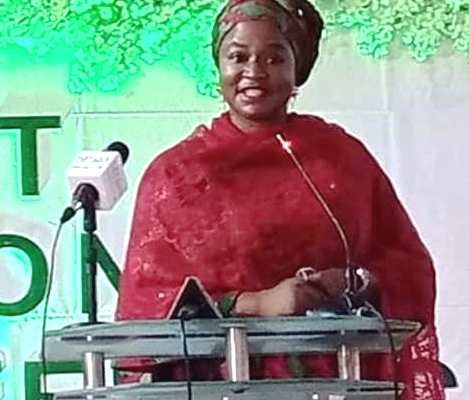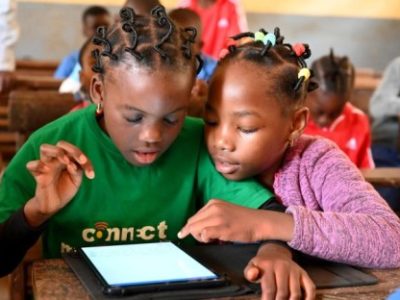The National Information Technology Development Agency (NITDA) has assured that it will strengthen its partnership with Nigeria Women in Information Technology (NIWIIT) and similar organisations to close the digital divide for the female gender.
RELATED: NITDA reaffirms commitment to creating right policies for women entrepreneurs
Globally, the technology industry is dominated by the male gender with the female population accounting for less than 30% of the manpower in the industry. In Nigeria and other African countries, the statistics are much lower.
But the Director General of NITDA, Kashifu Inuwa Abdullahi, believes the gaps can be closed with sustained programmes targeting to up-skill more women in ICT.
Abdullahi encouraged girls and women with relevant technological abilities to harness their potential by up-scaling their skills in order to close the digital gender gap in the country. He was speaking at the recently held 10th Year Anniversary of the NIWIIT National Conference in Lagos.
While delivering his goodwill message on the theme ‘Unleashing Innovation: Scaling Up Digital Skills for Women and Girls,’ Abudullahi, who was represented by the Deputy Director, Digital Economy Department, Dr. Amina Sambo, noted that bringing women to speed in the nation’s digital economy journey is critical to the country’s long-term prosperity.
“Women and girls account for more than 50% of our population. At this age, building the digital skills of this population is one of the most strategic and wisest things any Government could embark on to unleash innovation in entrepreneurship and other frontiers for social and economic growth.”
The NITDA boss commended the organisers for bringing the digital gender divide concerns to the front burner even as he expressed optimism that the event will give insights into creative approaches toward building digital skills of the women. “Female career growth was heavily impacted as childcare and home responsibilities increased during COVID-19 lockdown,” said Abdullahi while referencing a recent report by the African Developer Ecosystem.
Women and girls are faced with fewer opportunities to develop and explore the heights of their potential, which are mostly attributed to limited support and placements for them. Other reasons are physiological and perceived relegation of women folk to home keeping and childbearing all of which truncate their full potentials.
“These realities remain more dominant in the developing countries of the world. While women in first-world countries also deal with problems of career resilience, their counterparts in poorer countries have the other hurdles of poverty, poor healthcare, and low standard of living, to deal with on a daily basis, thereby depriving them of a conducive environment to develop their potential”.
Opportunities abound for women to explore and dominate the digital economy but they require a reorientation, training in digital literacy and related skills to participate in the ever-growing global digital economy which Oxford Economics valued at $11.5 trillion or approximately 16% of the global economy.
“Digital solutions and the requisite digital skills have the potential to create opportunities for women to make a difference in society and earn industry-standard fees for making such services available, further positioning themselves to export their skills internationally as real drivers of change.”
Having understood the potential of the value women can create, the NITDA has been making significant strides to empower women in developing digital skills through the creation of various capacity building programmes and initiatives to support digital entrepreneurship in women and also accelerate the achievement of the objectives of its digital literacy and skills strategy, Abdullahi added.
“We give women and girls special consideration in all of our initiatives and programmes. Women should not be discouraged; there are favourable reports about girls and women’s development. Therefore, there is a need to continue creating and strengthening awareness and preparing our women and girls for the challenge of today and preparing them for tomorrow’s opportunities.”
The President of the NIWIIT, Dele Bayo-Osibo, stressed that gender inclusion is now synonymous with digital inclusion.
“NIWIIT must take on the baton and contribute her quota to this clarion opportunity for building the Nation of the future,” she added.
The event drew participants from across sectors.































